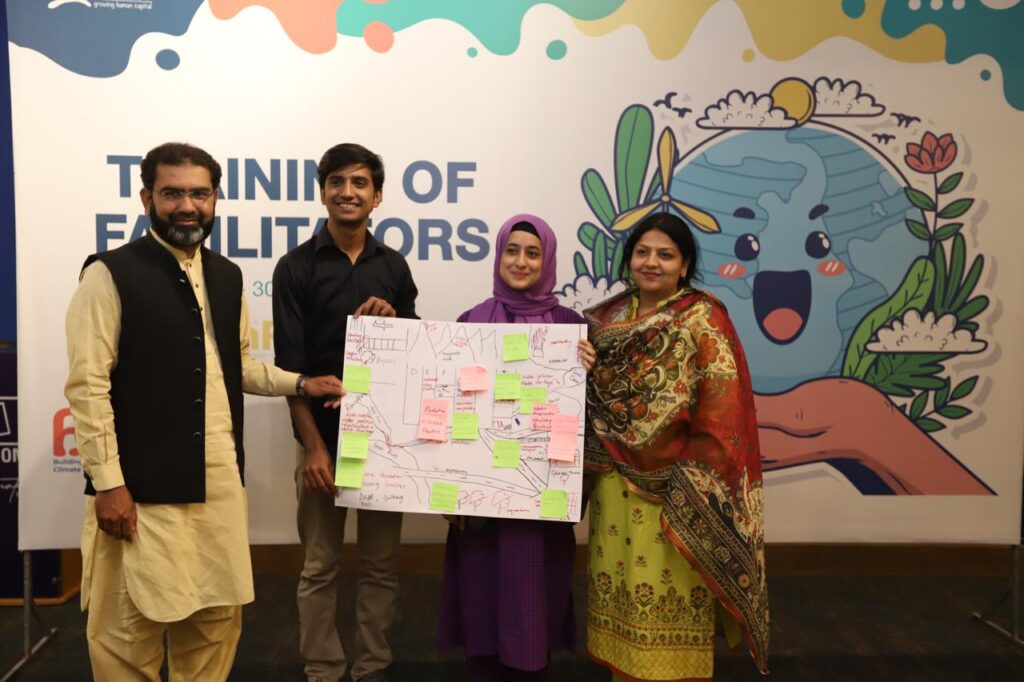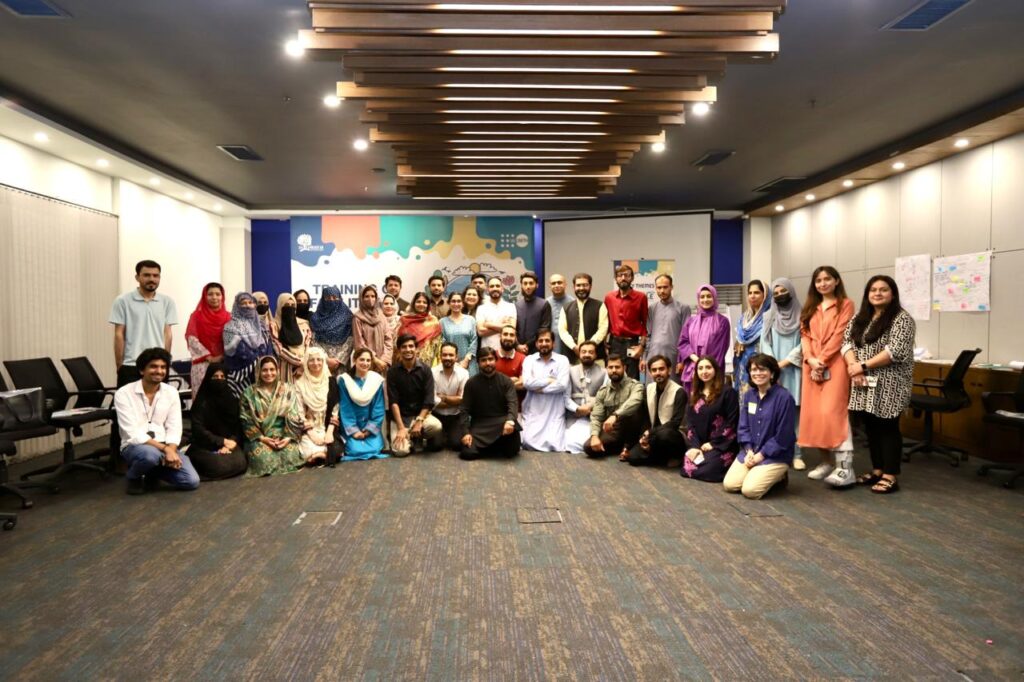
UNFPA Pakistan and SoLF kickstart the BRACE Programme to Empower Adolescents for Climate Action and Emergency Preparedness
Islamabad : The United Nations Population Fund (UNFPA) in partnership with the School of Leadership Foundation (SoLF) Pakistan has launched the Building Resilience among Adolescents for Climate Action and Emergency Preparedness (BRACE) programme in Pakistan.With a shared commitment to addressing climate change and enhancing community resilience, UNFPA and SoLF Pakistan have partnered to launch BRACE, a 3-month comprehensive initiative aimed at empowering adolescents for a resilient future with support from the Kingdom of Netherlands. This programme is focused on key themes of Climate Change, Resilience Building, and Emergency Preparedness. The initiative aims to equip adolescents with the knowledge, skills, and resources needed to navigate the challenges posed by climate change and emergencies in Pakistan.The BRACE programme recognizes the vital role of adolescents in driving sustainable change and building resilience within their communities.

BRACE hopes to utilize the energy and creativity of adolescents. It seeks to develop a generation of well-informed and empowered young leaders who are focused on how to tackle climate change challenges and looking to mitigate the fallout from emergencies caused by natural disasters. The BRACE programme will actively engage adolescents aged 14-19 from multiple districts across Pakistan, including Islamabad, Mianwali, Quetta, Hairpur, Swabi, Nowshera, and Peshawar. The programme will prioritize marginalized communities and Afghan refugees through targeted community sessions to ensure inclusivity and representation.The training will be conducted over three days, with a focus on life-skills-based education. It will incorporate a variety of interactive and engaging activities to enhance learning outcomes. Through these sessions, participants will not only gain knowledge but will also be equipped with tools to understand climate change and respond effectively to emergencies. Following the training, participants will have the opportunity to implement small-scale climate action projects within their communities and schools. This hands-on approach will enable them to creatively disseminate the message and contribute to building resilience in their localities.The climate crisis is a major global challenge that requires multiplying efforts at the upstream and behavioral change and skills levels. Young generations are victims and potential champions for addressing climate change; this is why UNFPA exerted its efforts to equip our adolescents with the skills to remain resilient in the face of climate-related emergencies. Adolescents are adversely affected by climate change and are most vulnerable to it given that they are at a critical age, going through physical, mental, and emotional developments. Climate change not only negatively impacts their health and well-being but resulting consequences like forced displacement also compromise their educational and employment opportunities. I urge the government of Pakistan and all stakeholders to give more attention to supporting adolescents and youth to be agents of change. Adolescents and youth as rights holders deserve an Eco-social contract that meets their needs and addresses the climate-related challenges they face ”. -said Dr. Luay Shabaneh, UNFPA Representative. The first phase of the BRACE programme has commenced and focuses on the training of facilitators who will play a critical role in delivering effective sessions during the subsequent phase, i.e. training of adolescents and young people. Facilitators selected for the BRACE programme underwent specialized training that equipped them with the knowledge, skills, and tools necessary to conduct engaging and impactful sessions on climate action and emergency preparedness.“By investing in the capacity of facilitators, we aim to ensure that the BRACE sessions are delivered with excellence and that participants receive the support and guidance they need to become effective agents of change,” said Mariyam Irfan, Managing Director, School of Leadership Foundation.Through a series of intensive workshops and hands-on training sessions, facilitators received instruction on a wide range of topics, including climate science, emergency preparedness, community resilience building, youth engagement strategies, and effective communication techniques. The training was designed to enhance facilitators’ understanding of key concepts related to climate change and emergency response, as well as their ability to engage and empower adolescents during the sessions.The BRACE programme represents a significant step forward in mobilizing adolescent-led action to address the climate crisis and build resilient communities in Pakistan. Through this partnership, UNFPA Pakistan and SoLF aspire to develop the potential of adolescents to create a sustainable and prosperous future for all.
